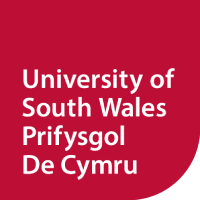About the Project
NEW Deadline: Midnight 21st May 2017
The successful candidate will have the opportunity to pursue a significant scientific and engineering ambition to develop a physical chemical process to improve the hydrogen recovery from coke oven gases. The project is co-sponsored by one of the world’s most innovative steel making companies, Tata Steel Strip Products, UK.
The research will explore a technical, economic and environmental assessment of innovative Hydrogen Separation and Purification methods from steelworks gases, especially hydrogen rich Coke Oven Gas (COG). Hydrogen is currently used in significant quantity within the steelmaking process, yet typically this hydrogen is purchased following production from the steam-methane reforming process, resulting in significant environmental emissions. Various steelworks process gases have a high content of hydrogen and although a quantity of the energy is recovered from these gases, a significant proportion flared to atmosphere. Recovery of pure hydrogen from steelworks gases such as COG could displace purchased hydrogen, provide the basis for lower emission processes within the steel plant and offer an opportunity for hydrogen export. The consequence could be a major improvement to the productivity and environmental performance of the steelmaking process as well as providing opportunities for new revenue streams.
Hydrogen recovery from COG is not without problems. Variable composition and contaminants, such as tars, particulates or sulphur compounds complicate the separation and purification of hydrogen. Thus the work will address the need for additional steps for removal of contaminants clean up of COG prior to this issue by modelling and optimisation of hydrogen recovery against any reduction in the calorific value of the residual COG.
The research would include a rigorous analysis of current and innovative methods for separation of hydrogen from COG, including variants of pressure swing adsorption, membrane and electrochemical separation processes. The work will also incorporate an investigation into the economic opportunity presented by the separation of hydrogen from COG, as well as a detailed study of the environmental impact of the separation options, extending to the potential uses of the extracted hydrogen. The complexity of the problem to be addressed includes the identification and development of an appropriate (and novel) hydrogen separation process from COG.
The successful candidate will be supported by industrial supervision from the Tata Steel Works at Port Talbot and by professorial and post-doctoral researchers at USW. Linkage to existing projects such as ERDF funded FLEXIS project will give the successful candidate access to a larger network of researchers and industrial interests.
Eligibility of Student:
To be eligible to hold a KESS studentship, you must:
- have a home address in the Convergence area (details below)* at the time of registration.
- have the right to take up paid work in the Convergence area* on completion of the bscholarship.
- be classified by the University as ‘home’ or ‘EU’ for tuition fees purposes according to the University’s guidelines.
satisfy University of South Wales’s admissions criteria: see below
*The Convergence area covers West Wales and the Valleys, and is made up of the following 15 local authorities: Isle of Anglesey, Gwynedd, Conwy, Denbighshire, Ceredigion, Pembrokeshire, Carmarthenshire, Swansea, Neath Port Talbot, Bridgend, Rhondda Cynon Taf, Merthyr Tydfil, Caerphilly, Blaenau Gwent and Torfaen.
Qualifications and experience:
Eligible applicants will:
- Have a degree (2i or higher) in an appropriate Scientific/Engineering discipline
- Possess understanding of gas separation technologies or chemical engineering disciplines would be of advantage.
- Be highly self-motivated, with capacity to learn and develop scientific techniques
- Have well-developed and positively collaborative interpersonal skills
- Have an ability to deliver technical reports and communicate science
- Be willing to travel and work in industrial settings
The position is available from October 2017.
Funding Notes
The project is funded by the Knowledge Economy Skills Scholarship (KESS) programme and will be based in the Faculty of Computing, Engineering and Science at the University of South Wales. KESS is a programme funded by the European Social Fund (ESF) awarded by the Welsh European Funding Office (WEFO) in the Welsh Government.
The studentship will cover the fees for a 3-year full-time PhD programme and pay a stipend of circa £14k p.a. There is also around £3.5k project support costs available for consumables, travel/conference attendance, minor equipment, training (including the KESS Grad School) and conference attendance.

 Continue with Facebook
Continue with Facebook

